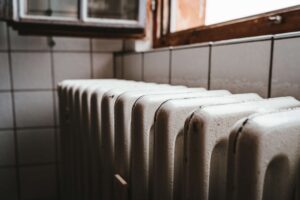EU to propose electricity rationing system
The European Union is proposing an electricity allocation system within the EU to prevent the capped prices of gas and electricity from ruining national budgets. According to the proposal by the European Commission, electricity consumption must be limited in less important areas for 3 to 4 hours during working days to prevent the collapse of industry. Households would then only be able to use one or two appliances during certain hours. This proposal comes as a result of an acute energy crisis that is affecting the entire European Union. Due to the shortage of gas in Europe and the shutdown of French nuclear power plants, there is a shortage of electricity and power overflows that are threatening the stability of the electrical networks in Europe. Governments of EU countries have been capping prices by means of subsidies and government bonds, but this could ruin the countries while preserving the current consumption levels. Therefore, consumption must decrease throughout the EU and only smaller amounts of consumption in the population will be subsidized. The allocation system is aimed at reducing electricity consumption during peak hours from Monday to Friday, when there is a peak in the demand for electricity. During these hours, there should be a mandatory reduction in electricity consumption in uninhabited households, while people are at work. The specific details of the allocation system are yet to be determined, but it is believed that it will require households to install meters to monitor their electricity usage. In addition, the proposed system will enforce penalties for households that exceed the allotted consumption levels during the peak hours. The penalties could range from monetary fines to the temporary disconnection of electricity services. The proposal by the European Commission has received mixed reactions, with some advocating for its implementation as a necessary step towards a sustainable energy future, while others are concerned about the impact it will have on households and their daily routines. Regardless of the opinions, the energy crisis in Europe is a pressing issue that needs to be addressed, and the proposed allocation system is one of the solutions being considered to address this issue.[1]
SOURCE: Kolotoče, Vedoucí. “Evropská Unie Navrhne Přídělový Systém Na Elektřinu v EU.” Www.aeronet.news, AE News, 13 Sept. 2022, aeronet.news/evropska-unie-navrhne-pridelovy-system-na-elektrinu-v-eu-aby-zastropovane-ceny-plynu-a-elektriny-nezruinovaly-narodni-rozpocty-fialova-vlada-o-tom-vedela-jiz-koncem-minuleho-tydne/.
[1] The article is divided using subheadings. Each section presents a rather illogical mix of arguments that try to target the reader’s emotions. In the sections of the articles, the author, for example, dwells on the green deal, which he sees as a means of re-educating the population. He also scares about the so-called „big reset“, which he considers to be a means of violent political change in our society that would lead to so-called „total control“.
analysis:
The information is not only poorly worded, but also purposefully distorted to support certain views and arguments. The article states that the European Union has proposed a law that is intended to have a significant impact on people’s lives. However, on close examination, it turns out that no such proposal has ever been made.
This information is therefore untrue and may be harmful to readers who believe it and should not be taken seriously until it is confirmed by other verified sources. The author often completely fabricates information in the article or tries to twist the facts to make it sound different than intended. The article also refers, for example, to Bloomberg, which has already reported on the issue.
Their article also mentions the rationing system in an exaggerated way, but adds an explanation. In fact, during the working week, there could be a few hours during which electricity is generated mainly from gas, which is scarce and expensive. Consumption should therefore be located more in hours when, for example, renewable sources can be involved in electricity generation. At the same time, no commonly used technology is capable of regulating the use of electrical appliances in homes so that some can work and others cannot.
Ultimately, the misleading information in such articles can lead to the spread of misinformation and the omission of important issues. The aim of this is to create fear in the readers, which can lead to their radicalization and reinforce their attitudes, which are already pro-Russian (by the nature of the medium). At the same time, these readers, under the weight of facts they believe, may feel obliged to circulate the article among their friends and possibly spread the misinformation further. It is important that we are cautious and critical of the information we are offered and that we always seek out verified sources in order to get a correct picture of the situation.
- Directory of legal acts[online], 2023. Bruxelles: European Commission [cit. 2023-03-22]. Available on: https://eur-lex.europa.eu/browse/directories/legislation.html
- ČTK. EK navrhne omezování spotřeby elektřiny. Podobá se to přídělovému systému, hlásí Bloomberg: Úspory elektřiny. cz[online]. 12.9.2022 [cit. 2023-03-22]. Available on: https://echo24.cz/a/SzavR/zpravy-zahranicni-evropska-komise-navrhne-dva-cile-ohledne-uspor-elektriny
- ADEGBESAN, Angel. Solar Is Now 33% Cheaper Than Gas Power in US, Guggenheim Says. Bloomberg[online]. New York, 3.10.2022 [cit. 2023-03-22]. Available on: https://www.bloomberg.com/news/articles/2022-10-03/solar-is-now-33-cheaper-than-gas-power-in-us-guggenheim-says#xj4y7vzkg
about the source:
Aeronet (also known as AE News) is an anonymously operated disinformation website published in the Czech language. The editor-in-chief of the website operates under the abbreviation VK as „vedoucí kolotoče – meaning the head of the merry-go-round.“ According to the authors‘ own characterization, it is an „independent online news portal prepared by Czech and Slovak nationals living in the Netherlands, Russia, and the USA,“ or „the central server of the media resistance in the Czech Republic.“ However, its content is dominated by unverifiable news and speculation. The Security Information Service designated Aeronet.cz as a source of dangerous Russian propaganda in 2014. The Czech Republic’s Ministry of the Interior lists Aeronet.cz on a list of websites spreading disinformation. Contributions to these pages are usually unsigned and their sources are usually anonymous, but their orientation is usually pro-Russian. It is not clear who is funding this website, it uses a number of „white horses“ to conceal funding.


